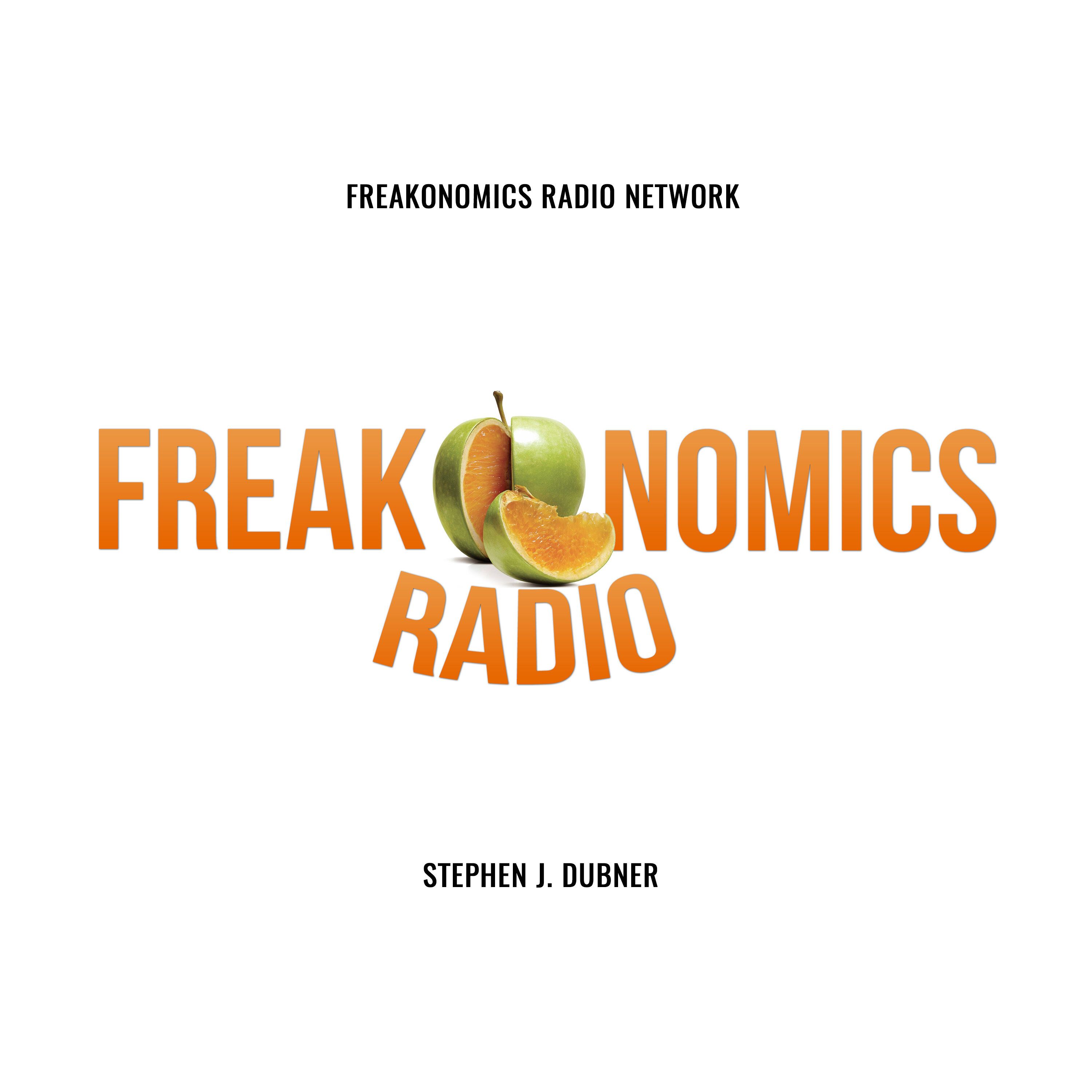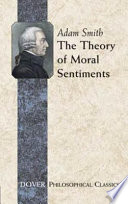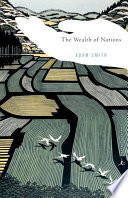📚 2 Books mentioned in "In Search of the Real Adam Smith | Freakonomics Radio | Episode 525" of Freakonomics Radio

Podcast: Freakonomics Radio
Episode: In Search of the Real Adam Smith | Freakonomics Radio | Episode 525
Published on January 2, 2023
Here’s a list of all the books mentioned in this episode. Click on the links to watch specific excerpts on YouTube and feel free to purchase the books if they caught your interest!

The Theory of Moral Sentiments
Buy The Theory of Moral Sentiments by Adam Smith on Amazon
Maybe you have read some of Smith's first book, The Theory of Moral Sentiments, but probably not.
In this segment, host Stephen Dubner discusses Adam Smith's first book, 'The Theory of Moral Sentiments', suggesting that it is less commonly read compared to Smith's other renowned work.
There were just the two books: The Theory of Moral Sentiments and The Wealth of Nations, with multiple editions of each since he was an inveterate reviser.
In this segment, the podcast host highlights 'The Theory of Moral Sentiments' as one of the two significant works by Adam Smith, alongside 'The Wealth of Nations', while noting that Smith was known for revising his texts extensively.
And these are the questions that animate Smith's first book, The Theory of Moral Sentiments.
In this segment, host Stephen Dubner discusses 'The Theory of Moral Sentiments,' highlighting it as the foundational book that addresses moral judgment questions.
Coming up, we hear from one Smith scholar who agrees that The Theory of Moral Sentiments is the more interesting, richer, and in many ways, the more innovative of the two books.
In this segment, podcast host Stephen Dubner introduces a discussion featuring a Smith scholar who highlights the innovative aspects of 'The Theory of Moral Sentiments', describing it as richer and potentially more interesting than another of Smith's works.
You see the humanity and understanding of people from The Theory of Moral Sentiments even more so than from The Wealth of Nations.
In this segment, podcast host Stephen Dubner discusses the insights of 'The Theory of Moral Sentiments,' highlighting its portrayal of human nature and empathy, comparing it to Adam Smith's other work, 'The Wealth of Nations.'
I think my understanding of Smith has moved on; that would have been the book which people would have recognized, but for Smith, of course, there's no question about it, The Theory of Moral Sentiments is an extremely important book.
A guest speaker discusses how their understanding of Adam Smith has evolved, highlighting the significance of 'The Theory of Moral Sentiments' as a key work that many people recognize.
The Theory of Moral Sentiments, The Wealth of Nations; those were the books Adam Smith left behind.
In this segment, Stephen Dubner highlights 'The Theory of Moral Sentiments' as one of the significant works authored by Adam Smith, alongside 'The Wealth of Nations'.
It doesn't say The Theory of Moral Sentiments, but The Theory of Moral Sentiments tells you so much more about Smith than what The Wealth of Nations does.
Stephen Dubner discusses how 'The Theory of Moral Sentiments' provides deeper insights into Adam Smith's thoughts compared to his more famous work, 'The Wealth of Nations'.

The Wealth of Nations
Buy The Wealth of Nations by Adam Smith on Amazon
It also says on the site stood the home of his mother, in which he lived from 1767 to 1776, and completed The Wealth of Nations.
In the podcast, host Stephen Dubner refers to 'The Wealth of Nations' while discussing the historical context surrounding its completion and its significance.
The Wealth of Nations is an attack on the entire commercial system of Great Britain.
In this segment, the podcast host references Adam Smith, highlighting his influential work, "The Wealth of Nations," which critiques the commercial system of Great Britain.
Smith later very famously said that this letter brought on me ten times more abuse than the very violent attack I made on the entire commercial system of Great Britain, meaning of course The Wealth of Nations.
In this segment, the host discusses a quote from Adam Smith, where he reflects on the backlash he received after discussing his seminal work, The Wealth of Nations. Smith emphasizes the impact of his book on public perception and debate.
There were just the two books: The Theory of Moral Sentiments and The Wealth of Nations, with multiple editions of each since he was an inveterate reviser.
In this segment, the podcast host discusses Adam Smith's significant works, highlighting 'The Wealth of Nations' alongside 'The Theory of Moral Sentiments,' emphasizing Smith's tendency to revise his publications.
Years later in The Wealth of Nations, he would blame the incentives, explaining that professors were paid well whether they taught well or not at the University of Oxford.
In this segment, Stephen Dubner discusses Adam Smith's critique in 'The Wealth of Nations', where he highlights the issue of professors at the University of Oxford being rewarded regardless of their teaching effectiveness.
You see the humanity and understanding of people from The Theory of Moral Sentiments even more so than from The Wealth of Nations.
In this segment, podcast host Stephen Dubner draws a comparison between 'The Wealth of Nations' and 'The Theory of Moral Sentiments', highlighting how the latter showcases a deeper understanding of human nature.
It doesn't say The Theory of Moral Sentiments, but The Theory of Moral Sentiments tells you so much more about Smith than what The Wealth of Nations does.
In this segment, podcast host Stephen Dubner highlights the differences between 'The Wealth of Nations' and 'The Theory of Moral Sentiments,' emphasizing that the latter provides deeper insights into Adam Smith's ideas.
But you see the references to The Wealth of Nations.
In this segment, podcast host Stephen Dubner discusses a mention of 'The Wealth of Nations,' referring to its significance as a foundational economic text.
Adam Smith changed that; here is a famous passage from the first of five books that make up The Wealth of Nations: 'It is not from the benevolence of the butcher, the brewer, or the baker that we expect our dinner but from their regard to their own interest.'
In this segment, the host Stephen Dubner discusses a notable excerpt from Book One of 'The Wealth of Nations' by Adam Smith, emphasizing the idea that self-interest drives economic behavior rather than altruism.
What is Smith trying to explain in The Wealth of Nations?
In this segment, podcast host Stephen Dubner inquires about the main intent behind Adam Smith's classic work, 'The Wealth of Nations'.
Here is how Smith put it in The Wealth of Nations: 'If they had all worked separately and independently and without any of them having been educated to this peculiar business, they certainly could not each of them have made 20; perhaps not one pin in a day.'
In this segment, a quote from Adam Smith's 'The Wealth of Nations' is discussed, highlighting the importance of specialization in production.
If you have read even a little bit of The Wealth of Nations, you may recall the passage that George Proudfoot is talking about here—the pin factory.
In this segment, host Stephen Dubner discusses the famous pin factory example found in 'The Wealth of Nations' by Adam Smith, inviting listeners to reflect on its significance.
Obviously, some biographers suggest that he was certainly looking at things in the early part of The Wealth of Nations; he talks about pin manufacture, and obviously in Kirkcaldy, that was in the next village to here.
During the discussion, a local expert brings up 'The Wealth of Nations' to illustrate an example of pin manufacture, indicating its relevance to the topic at hand.
And then, of course, with The Wealth of Nations, how do you understand the forces of national wealth?
In this segment, the host Stephen Dubner references 'The Wealth of Nations' by Adam Smith while discussing the concepts surrounding national wealth.
In that same year, a Scottish economist named Adam Smith launched another revolution with a book entitled The Wealth of Nations, which exposed for all time the folly of protectionism.
In this segment, the host Stephen Dubner discusses 'The Wealth of Nations', a pivotal book by Adam Smith that highlights the flaws of protectionist policies, emphasizing its revolutionary impact on economic thought.
If you know anything at all about Adam Smith, it probably comes from his second and most famous book, The Wealth of Nations.
In this segment, the host Stephen Dubner highlights 'The Wealth of Nations' as Adam Smith's second and most celebrated book, suggesting that most people's knowledge about Smith is derived from this influential work.
The Theory of Moral Sentiments, The Wealth of Nations; those were the books Adam Smith left behind.
In this segment, host Stephen Dubner references 'The Wealth of Nations' as one of the significant books left behind by Adam Smith.
